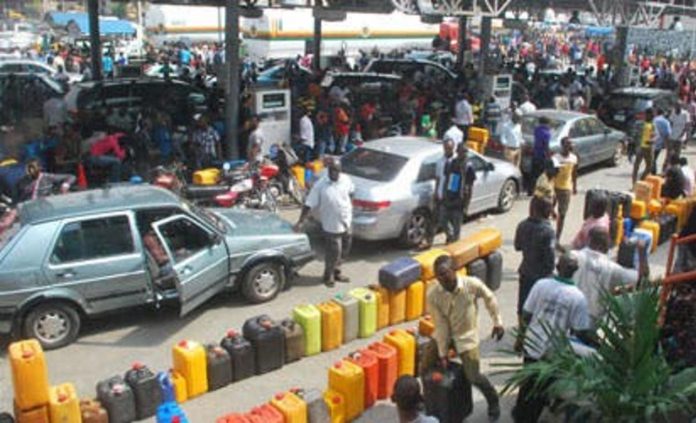In December 2022, Victor Ohwodiasa, Delta State Coordinator of Nigerian Midstream and Downstream Petroleum Regulatory Authority (NMDPRA) assured Nigerians the government was doing everything it could to end fuel scarcity.
He pledged consumers would buy fuel at the official price (i.e., N165-N185/litre), quality and quantity. However, a month after this declaration, prices have rather risen, and the scarcity persists.
Fuelling stations are selling petrol at rates over N200/litre with reports of a few stations with the pump fixed at about N300/litre.
There is a global fuel scarcity, accompanied by sharply rising prices. This crisis is deepened by the European ban on Russian gas following its conflict with Ukraine. Though the bulk of Nigeria’s refined petroleum is imported from Netherlands and Belgium, these countries import crude required for petroleum from Russia.
European countries have turned towards Liquified Natural gas (LNG) as an alternative to the pipeline of oil from Russia.
But surging shipping costs and other factors mean higher prices for lesser supply.
At private depots, fuel is selling at rates of N200-217/litre. All these factors have contributed to the staggering prices of fuel at the pumps, with reported prices topping N240/litre.
In light of the current administration’s plans to phase out fuel subsidy in June, a reluctance to provide a resolution that reduces the current prices could be assumed.
The removal was projected to double the price from N185/litre to about N340/litre at the time the plan was revealed. Pump prices have currently crept to about N300/litre. The possibility of hesitation is unsurprising despite claims that actions are being taken.
Despite the 21% inflation rate, the elites continue to approve budgets that fund the excesses of the rich and most powerful in government, whilst incurring more debt for the country. Their vehicles are purchased and fuelled with money from the public treasury under these inflated budgets. Therefore, they are less affected by the current exorbitant pricing. This is another explanation for their hesitation to take action.
Furthermore, additional taxes such as the Tertiary Health Tax proposed by the National Assembly -a greater burden to the overburdened masses- are ceaselessly introduced.
They remain unconcerned about the plight of the masses.
People have less disposable income due to the cost of fuel for personal consumption. Additionally, the cost of transporting goods from city to city, state to state has risen due to fuel; which means everything is more expensive.
We cannot continue like this. The working-class has to resist now to stop a terrible situation from becoming unbearably worse.
Iretimide Esther OSUNYIKANMI









